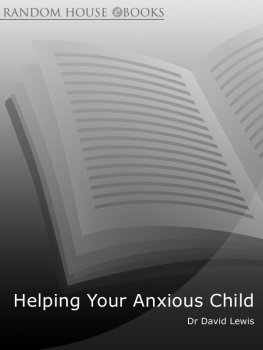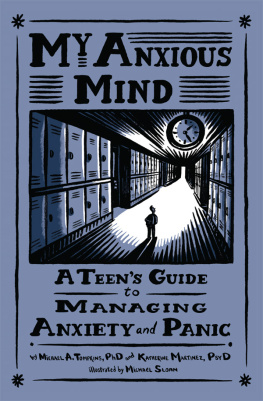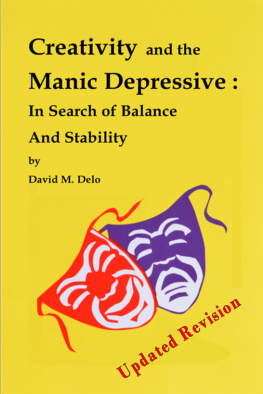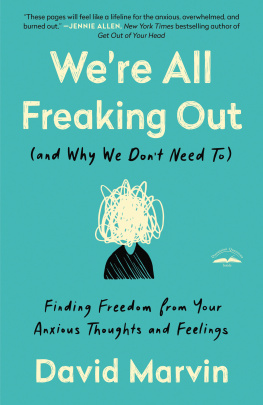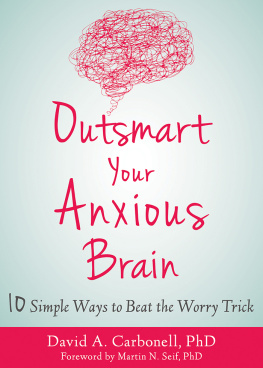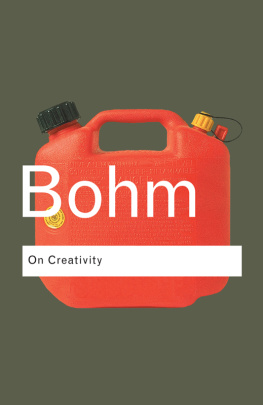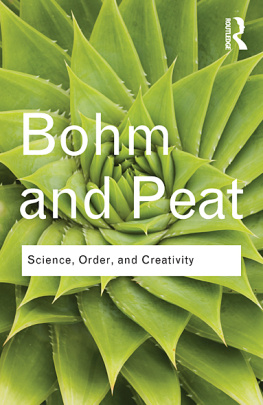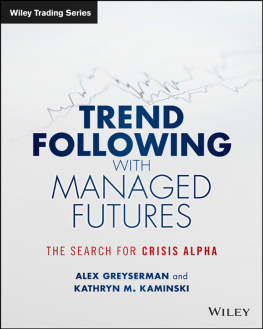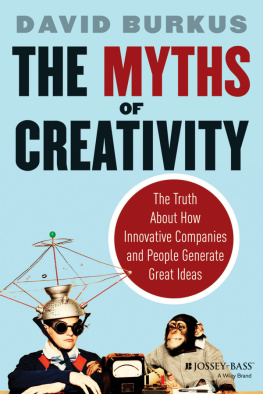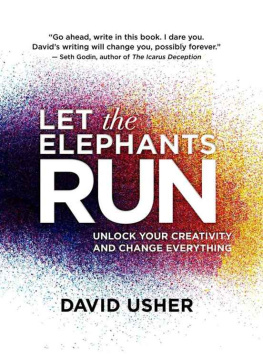
Anxious Creativity provides an important new perspective on the broader debate over the status of creativity in American society. The disciplinary frames for this debate are extremely diverse, including academic perspectives from educational theory, sociology and cultural studies, as well as a range of important public policy debates. In addressing this complex array of issues and political concerns Trend deploys an impressive range of references, including empirical studies, scientific research, journalistic reports and a myriad of sources in contemporary critical theory. The result is a unique set of commentaries on the question of creativity that will be of interest to scholars in an equally broad range of disciplines, as well as general readers. There are many books that focus specifically on new forms of participatory culture or media, crowd sourcing, etc. but no one has yet drawn this material into dialogue with broader debates around creativity and the creative class, theories of intersubjectivity, the arts and public policy. This book is destined to make an important contribution to policy debates over creativity and higher education.
Grant Kester, University of California, San Diego, USA
From the advent of paint-by-number artists kits to the publishing phenomenon of the adult coloring book to alleviate stress, from Apples Think Different campaign to Googles DeepMind group, David Trends Anxious Creativity maps the vast social domains where creativity is promised as a means to soothe the anxieties of Americans and solve the economic and political crises of capitalisms most recent twists and turns. Trends encyclopedic knowledge of art, cultural, social and political theory, as well as of the ever-multiplying discourses surrounding art and creativity, make Anxious Creativity a necessary book for anyone working at the intersections of these fields. But perhaps even more important, for anyone who has ever picked up a creativity self-help book (Big Magic, anyone? The Artists Way perhaps?) Anxious Creativity is a must read. Read this book and youll never be able to think of creativity in quite the same way again. That makes Anxious Creativity a formidable act of creativity in itself.
Micki McGee, Associate Professor, Sociology and American Studies, Fordham University, USA
David Trend's Anxious Creativity: When Imagination Fails deals with several topics that are crucially important at the moment. He explores the varieties of creativity discourses and the forces that foster and impede them, making a significant contribution to the sociological literature on these topics. The book will be very attractive to scholars in critical sociology, social and cultural studies in education, cultural theory, media studies, psychology, and technology studies.
Kenneth Saltman, University of Massachusetts, Dartmouth, USA; Author of Scripted Bodies: Corporate Power, Smart Technologies, and the Undoing of Public Education
Anxious Creativity
Creativity is getting new attention in todays Americaalong the way revealing fault lines in U.S. culture. Surveys show people overwhelmingly seeing creativity as both a desirable trait and a work enhancement, yet most say they just arent creative. Like beauty and wealth, creativity seems universally desired but insufficiently possessed. Businesses likewise see innovation as essential to productivity and growth, but cant bring themselves to risk new ideas. Even as ones inner artist is hyped by a booming self-help industry, creative education dwindles in U.S. schools.
Anxious Creativity: When Imagination Fails examines this conceptual mess, while focusing on how Americas current edginess dampens creativity in everyone. Written in an engaging and accessible style, Anxious Creativity draws on current ideas in the social sciences, economics, and the arts. Discussion centers on the knotty problem of reconciling the expressive potential in all people with the nations tendency to reward only a few. Fortunately, there is some good news, as scientists, economists, and creative professionals have begun advocating new ways of sharing and collaboration. Building on these prospects, the book argues that Americas innovation crisis demands a rethinking of individualism, competition, and the ways creativity is rewarded.
David Trend is Professor at the University of California, Irvine. His books include Elsewhere in America: The Crisis of Belonging in Contemporary Culture (2016), Worlding (2012), and The End of Reading (2010). Honored as a Getty Scholar, he is a former editor of the journals Afterimage and Socialist Review.
Critical Interventions
Politics, Culture, and the Promise of Democracy
Edited by Henry A. Giroux, Susan Searls Giroux, and Kenneth J. Saltman
The Great Inequality
Michael D. Yates
Elsewhere in America: The Crisis of Belonging in Contemporary Culture
David Trend
Scripted Bodies: Corporate Power, Smart Technology, and the Undoing of Public Education
Kenneth J. Saltman
Gender for the Warfare State: Literature of Women in Combat
Robin Truth Goodman
Disposable Americans: Extreme Capitalism and the Case for a Guaranteed Income
Paul Buchheit
The Public in Peril: Trump and the Menace of American Authoritarianism
Henry A. Giroux
Learning to Save the Future: Education After Economism and Digital Determinism
Alexander J. Means
Ecology and Revolution: Herbert Marcuse and the Challenge of a New World System Today
Charles Reitz
Anxious Creativity: When Imagination Fails
David Trend
First published 2020
by Routledge
52 Vanderbilt Avenue, New York, NY 10017
and by Routledge
2 Park Square, Milton Park, Abingdon, Oxon OX14 4RN
Routledge is an imprint of the Taylor & Francis Group, an informa business
2020 Taylor & Francis
The right of David Trend to be identified as author of this work has been asserted by him in accordance with sections 77 and 78 of the Copyright, Designs and Patents Act 1988.
All rights reserved. No part of this book may be reprinted or reproduced or utilised in any form or by any electronic, mechanical, or other means, now known or hereafter invented, including photocopying and recording, or in any information storage or retrieval system, without permission in writing from the publishers.
Trademark notice: Product or corporate names may be trademarks or registered trademarks, and are used only for identification and explanation without intent to infringe.
Library of Congress Cataloging-in-Publication Data
A catalog record for this title has been requested
ISBN: 978-0-367-27506-8 (hbk)
ISBN: 978-0-367-27509-9 (pbk)
ISBN: 978-0-429-29643-7 (ebk)
Most Americans will tell you they live in the worlds most creative country. But when pushed, theyll admit they dont feel creative themselves. These findings come from the largest survey of creativity to date, conducted by the Adobe Corporation and backed by previous research. Its no big surprise Americans perceive creative abundance, given the nations expansive media and consumer culture. More shocking is the disconnect with peoples actual lives. Many see a country brimming with expressive opportunity, much like the American Dream itself. But when reality sets in, they find themselves disregarded, uninspired, and unable to imagine a way out. Often, they turn on each other, their leaders, or even themselvesnever realizing that larger factors may be in play.



